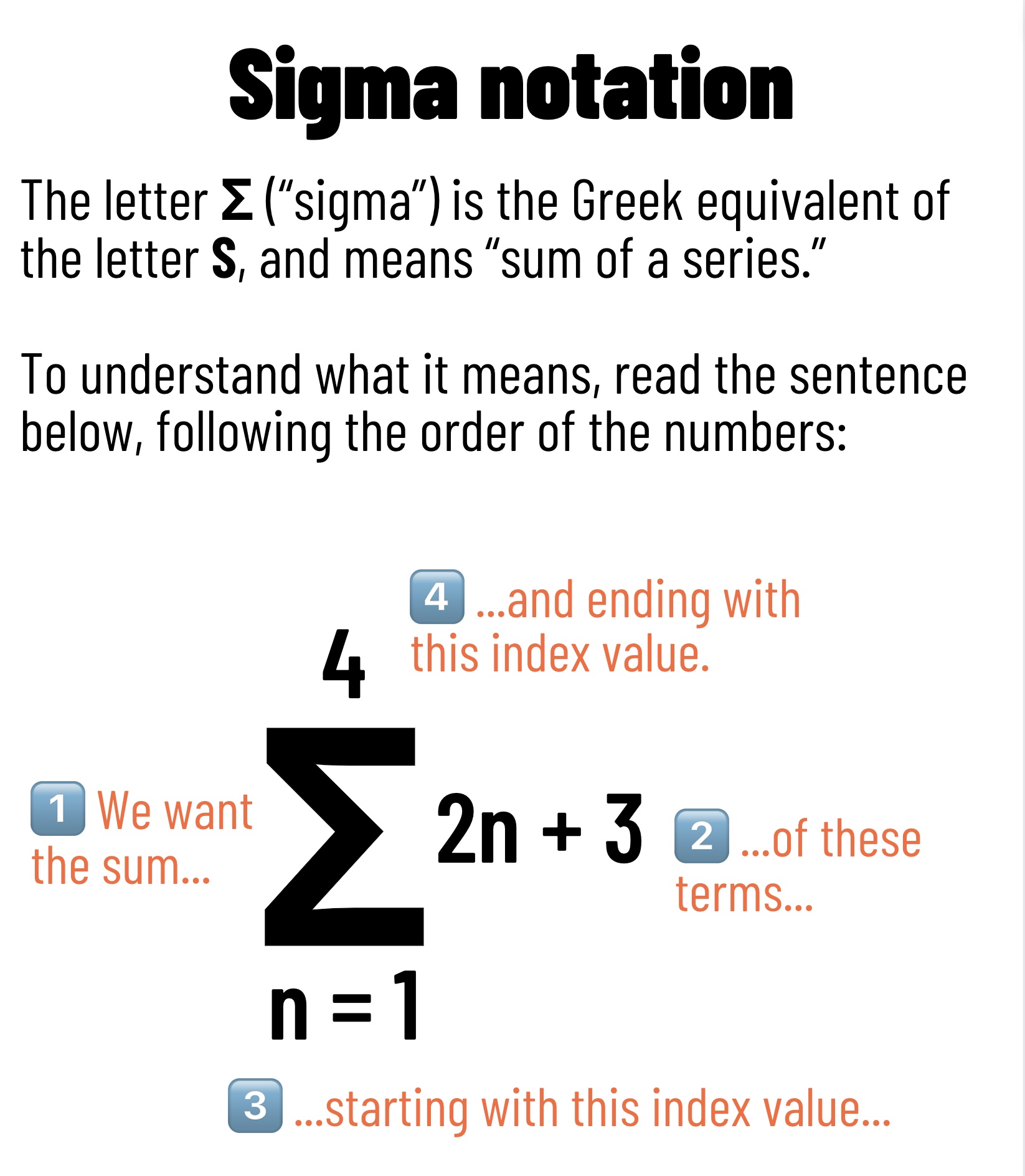What Does Sigma Mean? Unlocking The Hidden Power Behind The Greek Letter
Have you ever wondered what does sigma mean and why it’s such a big deal in various fields? Sigma isn’t just some random Greek letter—it’s a powerhouse symbol that carries deep meaning in math, science, engineering, and even pop culture. Picture this: you’re scrolling through a textbook or watching a movie, and suddenly the sigma sign pops up. What’s the deal? Let’s dive into the fascinating world of sigma and uncover its secrets.
From ancient Greece to modern-day mathematics, sigma has been around for centuries. It’s not just a letter—it’s a concept, a tool, and a symbol that represents everything from summation in math to social hierarchies in psychology. Whether you’re a student trying to ace your calculus exam or someone curious about sigma’s role in culture, this article’s got you covered.
Let’s face it—sigma might seem intimidating at first, but once you break it down, it’s actually pretty cool. Think of it as a key that unlocks doors to different worlds. Ready to explore? Let’s get started!
- Emily Compagno Age
- Breckie Hill Leaked Video
- Delicious And Personalized The Art Of Custom Udon Creations
- Peter Doocy Wife Cancer
- Who Is Ryan Vella
Understanding Sigma: The Basics
Before we dive deep into the rabbit hole, let’s talk basics. Sigma (Σ) is the eighteenth letter of the Greek alphabet. It’s pronounced “seeg-ma” and looks like an uppercase “E” on steroids. But here’s the kicker—it’s not just a letter. In the world of math and science, sigma has become a universal symbol for summation, meaning it adds things up. Imagine you’ve got a bunch of numbers, and you want to find their total. Instead of writing “plus” a million times, you use sigma. Boom—problem solved.
What Does Sigma Mean in Mathematics?
In math, sigma is like the ultimate team player. It’s used to represent the sum of a sequence of numbers. For example, if you’ve got 1 + 2 + 3 + 4 + 5, instead of writing it all out, you can use sigma notation: Σn, where n represents each number in the sequence. This makes complex calculations way easier and more efficient. Mathematicians love it because it saves time and space.
- Sigma is used in calculus to calculate areas under curves.
- In statistics, sigma represents standard deviation, which measures how spread out data is.
- Engineers use sigma to analyze systems and predict outcomes.
And here’s a fun fact: the lowercase sigma (σ) is often used in physics to denote electrical conductivity. Who knew one letter could do so much?
- Desi Punjabi Mms
- Bradley Cadenhead Texas The Untold Story Of A Rising Star
- Judy Blooms
- Alexa Bliss Sexy
- Keegan Bradley Wife
Exploring Sigma in Science and Engineering
Science and engineering wouldn’t be the same without sigma. Think about it—sigma helps scientists and engineers solve real-world problems by simplifying complex equations. For instance, when designing a bridge, engineers use sigma to calculate forces and ensure structural integrity. Without sigma, we’d be stuck writing out every single calculation by hand. Yikes!
Sigma in Physics: The Hidden Hero
In physics, sigma plays a crucial role in understanding how the universe works. It’s used to represent various concepts, such as:
- Electrical conductivity (σ)
- Surface tension in fluids
- Stress in materials
Physicists rely on sigma to analyze data and develop theories. For example, the standard model of particle physics uses sigma to describe the behavior of subatomic particles. Without sigma, we wouldn’t have the technology we enjoy today, from smartphones to space exploration.
What Does Sigma Mean in Psychology?
Psychology might not seem like the obvious place for sigma, but it’s actually pretty fascinating. In psychology, sigma refers to the concept of a “sigma male.” Now, before you roll your eyes, hear me out. A sigma male is someone who operates outside traditional social hierarchies. They’re independent, self-reliant, and often misunderstood. Think of them as lone wolves who march to the beat of their own drum.
While the term has gained popularity in pop culture, it’s important to note that psychology isn’t all about labels. Sigma males, like anyone else, have their strengths and weaknesses. The key is understanding and embracing individuality.
Sigma Male Traits: Fact or Fiction?
So, what makes a sigma male tick? Here are a few traits commonly associated with them:
- Independent thinking
- Strong leadership skills
- Preference for solitude
- High emotional intelligence
Of course, not everyone fits neatly into a box, and that’s okay. The beauty of psychology lies in its complexity and diversity. Sigma males remind us that there’s no one-size-fits-all approach to life.
Sigma in Pop Culture: The Rise of the Lone Wolf
Pop culture loves a good sigma story. From movies to TV shows, the sigma male archetype has become a staple in entertainment. Think about characters like Han Solo from Star Wars or Heath Ledger’s Joker in The Dark Knight. They’re rebels with a cause, breaking the rules and challenging the status quo.
But why are we so drawn to these characters? Maybe it’s because they represent something we all strive for—authenticity. In a world filled with noise and distractions, sigma males remind us to stay true to ourselves. They’re not afraid to be different, and that’s what makes them so compelling.
Sigma in Music: The Sound of Independence
Music is another realm where sigma shines. Artists like Kendrick Lamar and Tyler, The Creator have embraced the sigma spirit, using their platforms to express individuality and challenge societal norms. Their lyrics often reflect themes of self-discovery and empowerment, resonating with audiences around the globe.
Here’s a fun fact: the term “sigma” even made its way into music production. Sigma filters are used to enhance audio quality, adding depth and clarity to soundtracks. It’s like sigma is everywhere you look!
What Does Sigma Mean in Business?
Businesses love sigma because it’s all about efficiency and precision. Enter Six Sigma, a methodology designed to improve processes by reducing defects and variability. Companies like Motorola and GE have adopted Six Sigma to streamline operations and increase profitability.
But what exactly is Six Sigma? Think of it as a roadmap for success. It involves five key steps: Define, Measure, Analyze, Improve, and Control (DMAIC). By following this framework, businesses can identify problems, implement solutions, and achieve sustainable results.
Six Sigma: The Business Game-Changer
Six Sigma has revolutionized the way companies operate. Here are a few reasons why:
- Improved quality and customer satisfaction
- Increased productivity and profitability
- Reduced waste and inefficiencies
Companies that embrace Six Sigma often see significant improvements in their bottom line. It’s not just a buzzword—it’s a proven strategy for success.
Sigma in Technology: The Power of Precision
Technology and sigma go hand in hand. From software development to artificial intelligence, sigma plays a vital role in creating cutting-edge solutions. For example, machine learning algorithms use sigma to analyze data and make predictions. This helps businesses make informed decisions and stay ahead of the competition.
Sigma in AI: The Future is Now
Artificial intelligence is transforming industries, and sigma is at the heart of it all. By using sigma to process vast amounts of data, AI systems can identify patterns and trends that humans might miss. This leads to breakthroughs in fields like healthcare, finance, and transportation.
Imagine a world where diseases are detected early, fraud is prevented, and traffic is optimized—all thanks to sigma. It’s not science fiction—it’s happening right now.
Sigma in Everyday Life: Practical Applications
Believe it or not, sigma affects your everyday life in ways you might not even realize. From the apps on your phone to the products you buy, sigma is working behind the scenes to make things better. For example, when you shop online, sigma algorithms help recommend products based on your preferences. It’s like having a personal assistant that knows you better than you know yourself.
Sigma in Education: Learning Made Easy
Education is another area where sigma shines. Online learning platforms use sigma to personalize content and track student progress. This ensures that learners receive the support they need to succeed. Whether you’re studying math, science, or history, sigma is there to help you along the way.
And let’s not forget about standardized tests. Sigma is used to calculate scores and determine proficiency levels. It’s not perfect, but it’s a tool that helps educators assess student performance and identify areas for improvement.
Conclusion: Embrace the Power of Sigma
So, what does sigma mean? It means different things to different people, but one thing’s for sure—it’s a force to be reckoned with. From math and science to pop culture and business, sigma has left an indelible mark on the world. It’s a symbol of precision, independence, and innovation.
As we’ve explored in this article, sigma isn’t just a letter—it’s a concept that shapes the way we think, work, and live. Whether you’re a student, professional, or just someone curious about the world, sigma has something to offer you. So why not embrace it? Dive deeper, ask questions, and discover the hidden power of sigma for yourself.
And hey, if you found this article helpful, don’t forget to share it with your friends. Who knows? You might just spark a sigma revolution. Until next time, stay curious and keep learning!
Table of Contents
- Understanding Sigma: The Basics
- What Does Sigma Mean in Mathematics?
- Exploring Sigma in Science and Engineering
- Sigma in Physics: The Hidden Hero
- What Does Sigma Mean in Psychology?
- Sigma in Pop Culture: The Rise of the Lone Wolf
- What Does Sigma Mean in Business?
- Sigma in Technology: The Power of Precision
- Sigma in Everyday Life: Practical Applications
- Conclusion: Embrace the Power of Sigma

What Does the Term Sigma Male Mean? • 7ESL

sigma What does sigma mean on TikTok? Viral Patrick Bateman trend explored

Sigma Math